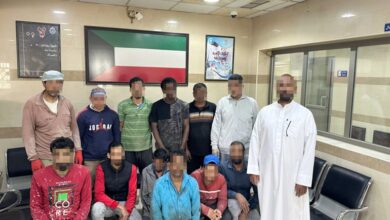GCC banks maintain strong capital buffers as Basel III progress diverges across the region: Fitch
In Kuwait, banks have experienced a gradual shift toward the enhanced Basel III framework, with deadlines for full compliance extended to 2019. Yet Fitch notes that Kuwait, Bahrain, and Oman have not yet fully completed Basel III reforms. Regulators in these markets have already issued consultation papers and reform roadmaps, with phased implementation expected to begin in 2025.

A new report from Fitch Ratings shows that while the speed of Basel III implementation varies across the Gulf, GCC banking systems continue to exhibit strong capital and liquidity positions, ensuring overall operational stability.
Fitch’s assessment reviewed the degree of alignment between regional regulatory frameworks and Basel III standards —particularly those governing capital and liquidity.
It highlighted that most Gulf regulators still rely heavily on the Standardized Approach for calculating risk-weighted assets (RWA), noting significant differences in how fast each country is rolling out the reforms.
Although Saudi Arabia is the only GCC member represented on both the Basel Committee on Banking Supervision and the G20, all Gulf regulatory bodies have broadly shaped their rules to align with Basel principles.
Historically, the Saudi Central Bank has led the region in adopting new standards, while others have followed a more measured timeline.
In Kuwait, banks have experienced a gradual shift toward the enhanced Basel III framework, with deadlines for full compliance extended to 2019. Yet Fitch notes that Kuwait, Bahrain, and Oman have not yet fully completed Basel III reforms. Regulators in these markets have already issued consultation papers and reform roadmaps, with phased implementation expected to begin in 2025.
Across the GCC, banks are rolling out some of the more capital-impacting RWA revisions over a five-year transition period, limiting the effect on capital ratios until at least 2028, when the phase-in is expected to conclude.
Fitch emphasized that GCC banks differ from many international peers in their reliance on the Standardized Approach rather than internal ratings-based models. This is driven by regulatory conservatism, data limitations, and cost-benefit considerations. As a result, RWA density in the GCC remains above global averages, yet the region’s banks continue to post strong Tier 1 capital ratios, bolstering their shock-absorption capacity.
Solid core operating profitability and conservative risk assessments further support banks’ resilience, helping buffer any future capital impact from the full Basel III rollout.
Liquidity Conditions Remain Strong
GCC regulators have adopted liquidity coverage ratios that generally exceed minimum international requirements, prompting banks to maintain substantial high-quality liquid assets, particularly government securities.
Compliance with the Net Stable Funding Ratio (NSFR) is more varied due to the region’s structural dependence on short-term deposits. Even so, authorities across the Gulf maintain a strong ability and willingness to inject liquidity when needed—especially in alignment with strategic credit-growth objectives.
Fitch also pointed to differences in calculating RWAs for Islamic banks, which in some jurisdictions rely on an “alpha factor.” In Kuwait and Bahrain, regulators apply alpha factors of 50% and 30%, respectively, though Islamic banks must still meet the same minimum capital thresholds as conventional lenders.
Looking ahead, Fitch expects steady, cautious, and well-managed progress toward full Basel III compliance across the Gulf, supported by the region’s notably strong bank capitalization.












